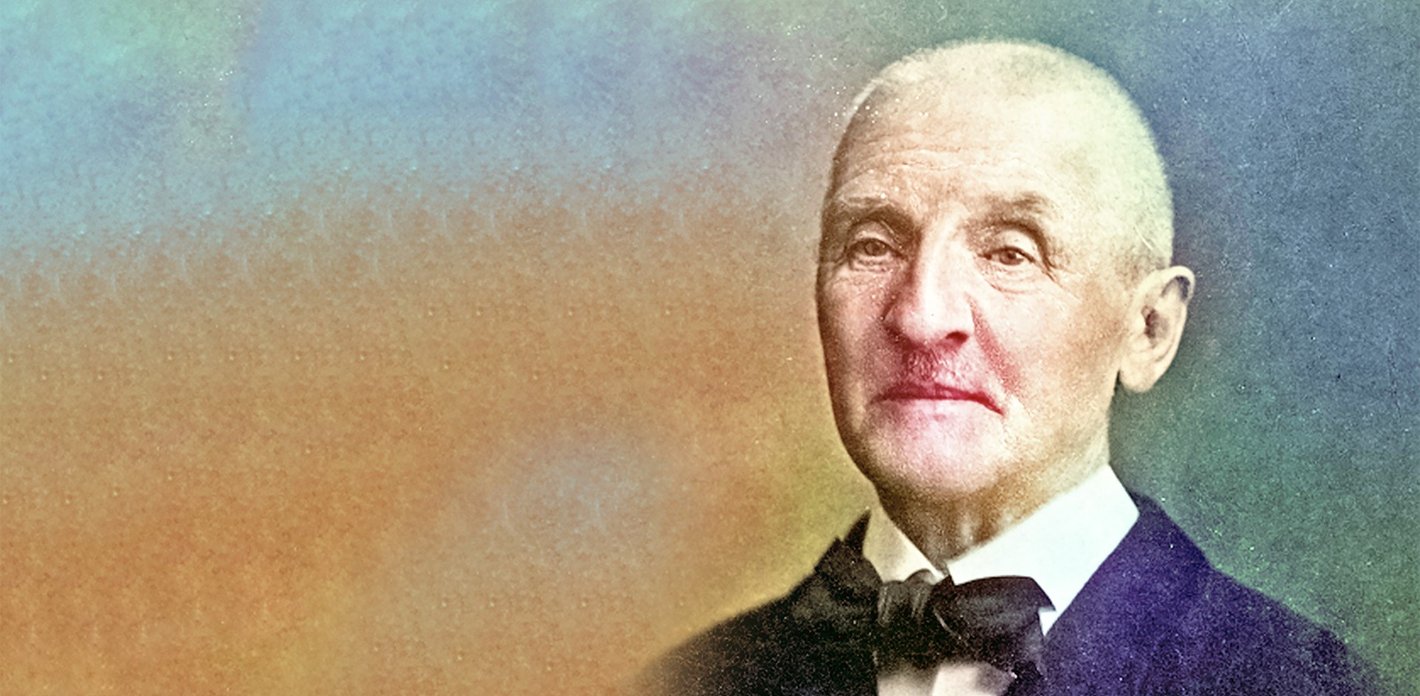
The Austrian radical late romantic composer, Anton Bruckner, was the eldest child of his schoolmaster father. The family, which ultimately included ten siblings, lived in a village near Linz. At 13, Anton was sent to the Augustinian monastery at Sankt Florian. There he honed his skills as an organist. Today, his remains are interred under that monastery's organ. Though clearly musically gifted, his mother sent him to be a teaching assistant, for two years, at a school when he was 17. There, his sadistic boss humiliated the young man to the point that he never recovered his self-esteem. Anton was deeply religious and had a lifelong inferiority complex which manifested itself in constantly revising his compositions in order to appease his critics.
Bruckner never married despite yearning to do so. As he aged, he always courted very young ladies in the belief that, by doing so, he could ensure their virginity. In all likelihood, the potential wives either found him unattractive or too religiously demanding.
The composer was in his late thirties, and largely self-taught, before becoming totally committed to his art form and over 60 before his works were widely acclaimed.
The Te Deum laudamus is a Christian prayer dating back to the 4th century. The opening Latin words translate into English as, "Thee, O God, we praise." Though the author of this hymn is uncertain, St. Ambrose, first Bishop of Milan, often gets the credit. The words are regularly sung, or recited, during Sunday services in the churches of most mainstream Christian denominations.
Throughout the centuries, many composers have set the words of Te Deum to music including Anton Bruckner. The dating of his composition coincides with his widespread recognition as a major composer. Although he began this work right after finishing his 6th symphony, in 1881, he soon set it aside while he composed his Symphony No. 7. When his Te Deum was completed, the dedication read, "Ad majorm Dei gloriam in gratitude for having safely brought me through so much anguish in Vienna."
During the last decade of Bruckner's life, his Te Deum was performed some 30 times. Though self-effacing to a fault, the composer referred to the work as, "The pride of my life." In 1885 this Te Deum was published by Theodore Rattig of Vienna, and Anton Bruckner was paid 50 guldens. That happens to be the only occasion in his life that he was compensated for a composition!
In 1892, the first American performance of Bruckner's Te Deum was given by the Chicago Symphony Orchestra, under Theodore Thomas, in Cincinnati as part of that city's renowned May Festival. Tonight, SFSO is joined by the South Florida Symphony Chorus with the distinguished soloist Elaine Alvarez, soprano; Neil Nelson, bass-baritone; Arnold Rawls, tenor; and Rehanna Thelwell, mezzo-soprano.
Program note by Ian A. Frazer